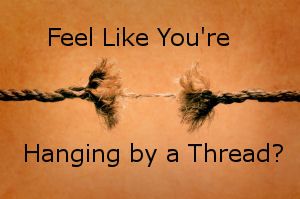Navigating Caregiver Challenges: Strain, Stress, and Emotional Health
Caring for my 88-year-old dad, a WWII vet and Japanese POW survivor, is emotionally challenging. He seeks advice I can't provide, argues, and feels lonely. Balancing respect, care, and my feelings is tough. I'm exploring ways to communicate better and ease the strain

Taking Care or Her WWII POW Father Causes Caregiver Stress and Burden
Net from Texas writes in about her caregiver role strain and her frustration dealing with a father who was a Japanese POW during WWII.
Net asks,
Why does my aging father want me to give him financial, medical, veterinarian, computer repair, and all other kinds of advice I am not qualified to give?
When I give him advice on things I have no knowledge of, he argues with me. It is always a lose/lose situation. It is very discouraging to me and has gotten to the point where I hate to get into any meaningful conversation with him. I understand that my caregiver role strain affects our relationship.
By saying "I don't know" all the time, I feel stupid.
How can I talk to him without having all these emotional ill feelings?
Dad is 88 years old, a World War II vet, and a Japanese POW survivor.
I am the second daughter of four children and his primary caretaker. He lives behind us and is pretty self-sufficient right now, but time is creeping up on him. He has no friends to speak of. Mom passed away 11 years ago. He has been here for three years since he was getting sicker, needed more help, and needed to be closer to family.
Dad is well off but chooses to live as poorly as he can get by with. His legacy is to leave his wealth to us kids, but he could live very comfortably if he wanted to.
What am I missing?
Any help would be greatly appreciated.
Dear Net,
First, let me say that I understand your frustration. You are one of four children and feel alone in your caregiving role. Unfortunately, this is not uncommon.
Let me start by addressing your father’s interactions with you.
Your dad may ask these questions because he needs someone to talk to and does not know how to communicate in any other way. So, he asks questions that you may have no clue how to answer.
That said, how you respond—or how you feel when you respond—is something you can control. If you choose to feel "stupid," that is a reaction you can work on.
Consider looking at this from a different perspective:
- Your dad may be lonely and seeking interaction.
- Is it in his nature to be negative and confrontational? To argue and complain?
- Did he interact with your mother in the same way?
If this behavior has always been part of his personality, it’s something you may need to accept as a part of who he is.
However, if this is new behavior, it could be a sign of early dementia. In that case, I recommend arranging for a comprehensive workup to assess for dementia.
As for your dad's "legacy," many parents share this goal of leaving an inheritance for their children. However, as people are living longer, they often outlive their finances.
This is why I strongly encourage families to sit down and discuss estate planning and planning for the future in advance. You, as the primary caregiver, may also want to investigate setting up a family caregiver contract to ensure clarity and fairness in caregiving arrangements.
Thank you for your questions, and please keep me updated about your dad’s situation.
Warm Regards,
Diane Carbo RN
More Tips to Relieving Caregiver Role Strain...
Understanding Caregiver Role Strain
Caregiving, while fulfilling, often comes with its own set of challenges, including role strain, stress, and burnout. Net's experience with her father, a WWII veteran and former POW, highlights these complexities.
The Complexity of Caregiving Responsibilities
Caregivers often find themselves juggling multiple responsibilities. Net's story, involving financial, medical, and technical advice, illustrates the diverse demands placed on caregivers, leading to role strain and stress.
Dealing with Caregiver Stress and Burnout
The continuous pressure and high expectations can lead to caregiver stress and burnout. Recognizing these signs is crucial for maintaining both the caregiver's and the recipient's well-being.
Understanding Caregiver Guilt and Fatigue
Feelings of guilt and fatigue are common among caregivers. It's important to acknowledge these feelings and seek support to manage them effectively.
Communicating Effectively with Care Recipients
Effective communication can mitigate misunderstandings and reduce emotional strain. Strategies like setting boundaries and seeking professional advice can be helpful.
Coping with the Challenges of Aging Parents
Caring for aging parents, especially those with complex histories like being a POW, requires patience and understanding. Recognizing the unique challenges they face is key to providing compassionate care.
Financial and Estate Planning in Caregiving
Discussing financial and estate planning can alleviate some of the stress associated with caregiving. This involves open discussions and possibly setting up a family caregiver contract.
Seeking Support and Resources
Utilizing available resources, including support groups and professional counseling, can provide much-needed relief and guidance for caregivers.
Embracing the Caregiving Journey
Despite its challenges, caregiving can be a rewarding experience. Understanding and managing the stresses and strains it brings is crucial for maintaining a healthy caregiver-recipient relationship.
Our Resource section can help you find the information and tools that you need. We have courses, videos, checklists, guidebooks, cheat sheets, how-to guides and more.
You can get started by clicking on the link below. We know that taking care of a loved one is hard work, but with our help you can get the support that you need.
Click here to go to Resource Section now!
You might also like this article:









